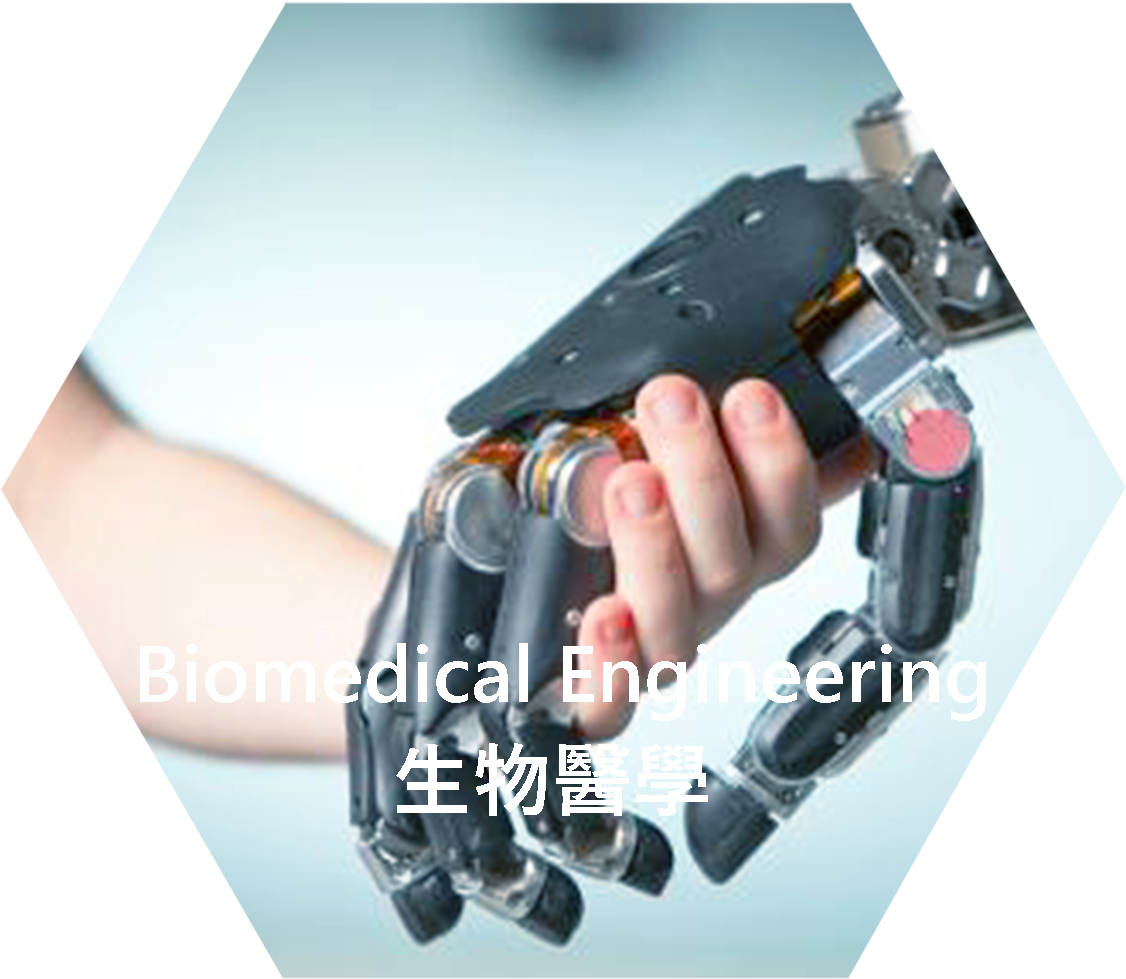Biomedical Engineering
Biomedical Engineering
Biomedical engineering is the application of engineering technology to provide solutions for biomedicine, such as medical and diagnostic instruments. It is a typical interdisciplinary field and is regarded as one of the most promising disciplines in the world. In this area, we mainly engage in brain neuroscience, medical imaging and physiological signal processing through the development and use of electronic, Internet of Things and information technologies. Among them, the main self-developed technologies include human body communication for implanted devices to access the Internet of Things, low-power, low-noise nerve cell signal front-end amplifiers, optrodes for optogenetic, ultrasonic sensors, and multitasking microprocessor for wearable / portable devices.
We have now three main laboratories, “Biomedical Engineering Laboratory”, “Biomedical Imaging Laboratory” and “E-Home Healthcare Engineering Laboratory”. Our current researches include “Optogenetic” to study the brain function and behavior, “Brain-Computer Interface” to control the computer by directly use of brain waves, “Imaging / Signal Processing” to improve medical image quality, and provide assistance in medical diagnosis. We have undertaken research projects of the Ministry of Science and Technology and won numerous international paper awards.
Research Focus
- Biomedical Engineering
Research on physiological signal processing and electronics with high accuracy, high reliability, low power, low noise and high mobility for IoT, E-Home Healthcare, etc.
- Medical Imaging
Research on medical image processing with high clearance, wide bandwidth, high reliability for CT/SPEC-CT, PET, etc.; self-designed CMUT transducer, wide bandwidth, high mobility, high reliability for ultrasound imaging, etc.;
- Neural Engineering
Research on control system, EEG and neural data processing for BCI experiments; signal processing, optrode and IC design for optogenetic experiments.

Relevant Faculty Members
| Name | Office Location | Contact Number | |
|---|---|---|---|
| Prof. Mang I VAI | E11-3035 | (853) 8822-4461 | fstmiv@um.edu.mo |
| Prof. Seng Peng MOK | E11-3045 |
(853) 8822-4491 | gretamok@um.edu.mo |
| Prof. Feng WAN | E11-3055 |
(853) 8822-4473 | fwan@um.edu.mo |
| Prof. Ruey-Song Huang | N21-1002a |
(853) 8822-9217 | rshuang@um.edu.mo |
| Prof. Sio Hang PUN | N21-3013b | (853)8822-4467 | lodgepun@um.edu.mo |
| Prof. Peng Un MAK | E11-3037 | C(853)8822-4393 | fstpum@um.edu.mo |
Relevant Laboratories
Highlights and Projects (including Awards, honors, etc.)
- Three championships (Motor imagination paradigm, Steady-state visual evoked potential paradigm and full game) at the 2019 World Robot Conference BCI Contest and the Third China BCI Contest, and set a new record in brain-controlled typing at the World Robot Conference (WRC) with a brain-computer interface algorithm they developed, UM-HKU Team with students of Prof. Feng WAN
- 2020 Macao Science and Technology Award, Natural Science Award, 3rd prize, “Nuclear medicine physics and its applications in precision medicine”, Prof. Seng Peng Mok
- Tracy Lynn Faber Award at the 65th Annual Meeting of Society of Nuclear Medicine and Molecular Imaging, June 23-26, 2018, Philadelphia, USA“for major contributions to high performance Emission Computed Tomography and Computed Tomography instrumentation, reconstruction, and analysis.”, Prof. Seng Peng Mok
- 2020-2022 Excellent Young Scientists Fund (Hong Kong and Macau) (81922080), Natural Science Foundation of China: “Artificial Intelligence for Improving Image Quality and Quantitative Accuracy in Nuclear Medicine Research ”, Prof. Seng Peng Mok
- Macao Science and Technology Award for Postgraduates 2018, Student of Prof. Seng Peng Mok
- 3rd prize (Tiantian LI) in Computer and Instrumentation Council Young Investigator Award Symposium, The 64th Annual Meeting of Society of Nuclear Medicine and Molecular Imaging, June 10-14, 2017, Denver, USA, Student of Prof. Seng Peng Mok
- Golden Award (Tiantian LI) in 4th Rising NM Professional Challenge, 2017 ASIAN NUCLEAR MEDICINE ACADEMIC FORUM, May 11-13, 2017, Shanghai, China, Student of Prof. Seng Peng Mok

